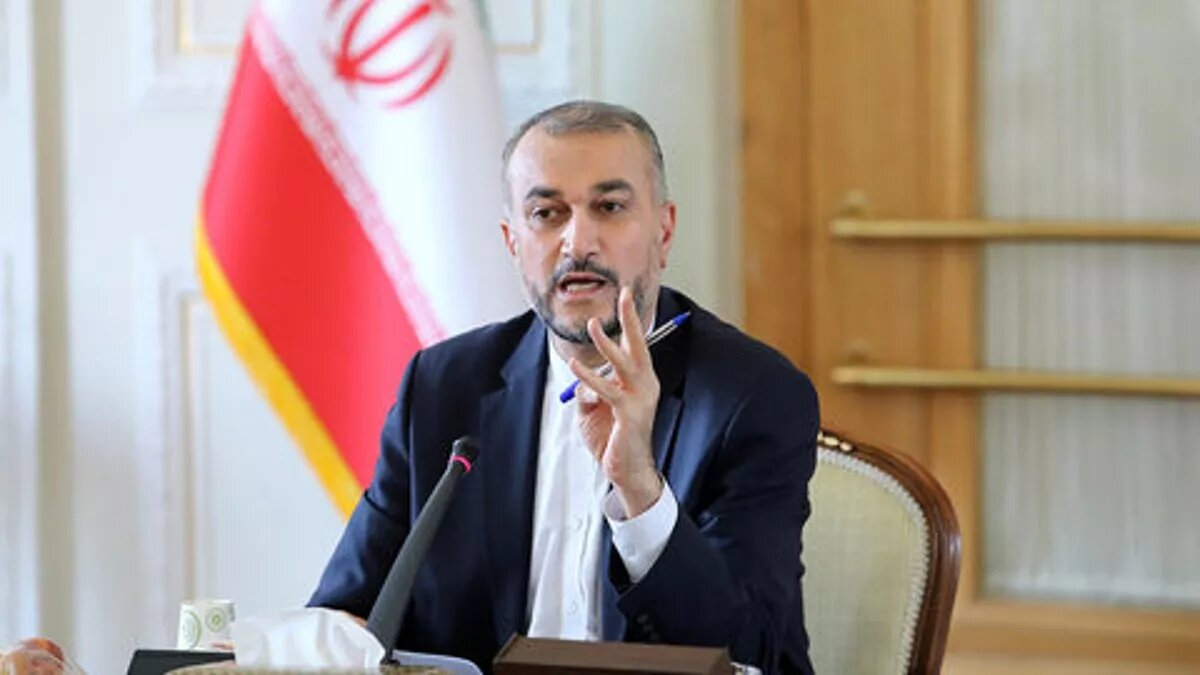FM expresses concerns over Rafah crisis with OIC secretary-general, Algerian, Saudi counterparts

TEHRAN - Iranian Foreign Minister Hossein Amir Abdollahian raised concerns about the dire situation in Rafah during phone discussions with the Secretary-General of the Organization of Islamic Cooperation (OIC) and the Algerian, Saudi Foreign Minister.
Iran, Saudi foreign ministers engage in phone call
Iranian Foreign Minister Hossein Amir Abdollahian and his Saudi counterpart, Prince Faisal bin Farhan Al Saud, engaged in a phone call on Friday to discuss various pertinent issues.
Among the topics on the agenda were the bilateral relations between their respective countries, ongoing regional developments, the Rafah crisis, and the humanitarian situation in the Gaza Strip.
Both diplomats also delved into the collective efforts being made to address these pressing matters.
Amir Abdollahian, who recently embarked on a regional tour, had prior discussions concerning the Palestine issue with diplomats from Syria, Lebanon, and Qatar, as well as leaders of resistance groups.
Iran's Amir Abdollahian consults with Ibrahim Taha regarding urgent OIC meeting
Amir Abdollahian engaged in a conversation on Thursday with Hissein Ibrahim Taha, the Secretary-General of the OIC, covering a range of pressing issues. These included the latest developments in occupied Palestine, the Israeli military's onslaught in the Gaza Strip, the recent devastating conditions in Rafah, the humanitarian crisis in Gaza, and the OIC's activities.
The Iranian Foreign Minister strongly condemned the recent Israeli attacks on Rafah, which tragically claimed the lives of numerous civilians, including many women and children.
According to Amnesty International, at least 95 people, including 42 children, have been killed in four separate Israeli assaults on Rafah, underscoring the severity of the situation.
Amir Abdollahian urged more proactive measures from the OIC to halt the Israeli aggression in Palestine, noting the significant time gap since the last OIC meeting.
He emphasized the necessity of convening an urgent session to assess the ongoing crisis and take decisive action in response to Israeli aggression.
Highlighting the dire conditions in northern Gaza, including shortages of essential supplies for residents, the Iranian Foreign Minister called for immediate decisions to facilitate the delivery of humanitarian aid, particularly food and medical supplies.
Additionally, Amir Abdollahian briefed Ibrahim Taha on his recent regional tour aimed at supporting the Palestinian people in their struggle against Israeli oppression.
In response, Ibrahim Taha expressed deep concerns about the continuing Israeli attacks and the deteriorating situation in Gaza, condemning the ongoing violence.
He praised the proposal for an urgent OIC meeting and pledged to work towards its convening by consulting with member states.
Iranian FM and Algerian counterpart discuss Palestine issue over phone
In a recent diplomatic exchange, the Iranian Foreign Minister engaged in a phone conversation with his Algerian counterpart, Ahmed Attaf, covering a range of bilateral, regional, and Palestinian issues.
Both diplomats condemned the ongoing Israeli war crimes against the vulnerable population in Gaza, highlighting the dire humanitarian situation and stressing the imperative for immediate international intervention to halt the Israeli aggression targeting civilians, particularly women and children.
They underscored the urgent need for humanitarian aid to reach the Palestinian people, especially those in the northern Gaza region, and called for an end to Israeli military attacks on areas like Rafah, which have resulted in the forced displacement of Gazans.
Rafah, situated approximately 30 km from Gaza City, has seen over half of its 2.3 million residents displaced, enduring harsh conditions on the streets.
During the conversation, the Algerian Foreign Minister extended greetings from President Abdelmadjid Tebboune to Iranian President Ebrahim Raisi, advocating for the participation of both leaders in the upcoming Gas Exporting Countries Forum (GECF) summit.
He reiterated Algeria's commitment to strengthening ties with Iran, sharing insights into Algiers' efforts as a non-permanent UN member to address the Israeli onslaught against Gaza.
In response, Iran's Amir Abdollahian provided an overview of his recent regional engagements in Lebanon, Syria, and Qatar, where he held consultations with diplomats and resistance group leaders to coordinate joint actions in support of the Palestinian cause.
He also discussed his initiative to convene an urgent meeting of the Organization of Islamic Cooperation (OIC), which was warmly welcomed by Ahmed Attaf.
Turkish FM foresees promising prospects in Tehran-Ankara relations
In a cordial message directed to his Iranian counterpart, the Turkish Foreign Minister extended warm congratulations on the occasion of the National Day of the Islamic Republic of Iran.
Hakan Fidan underscored the profound historical and cultural ties shared between Iran and Turkey, emphasizing that these longstanding connections have laid the foundation for robust bilateral relations, poised for further growth in the years ahead.
Highlighting the recent high-level engagement between the two nations, Fidan acknowledged the significance of the Iranian President's visit to Turkey, affirming that the outcomes of this meeting will significantly influence the trajectory of bilateral relations.
Moreover, Fidan emphasized the critical importance of strong cooperation between Turkey and Iran, particularly in addressing pressing political issues within the Islamic world.
Of utmost priority among these issues is the situation in Palestine, underscoring the shared responsibility of both nations to contribute to regional stability and peace.
Israeli attacks on Rafah
Following the Israeli attacks on Rafah, Amnesty International warned Israel has already violated international law in Rafah in four assaults since December.
Hamas resistance group condemned the latest aerial blitz on the crowded city, saying the aggression represents an “expansion of the scope of the massacres it is committing against our people.”
The vast majority of these refugees, internally displaced persons (IDPs), are trapped between the Israeli regime’s genocidal pressure and the collaboration of the Egyptian government.
The escalation of violence in Rafah, the southernmost city of Gaza, comes as the death toll from the Israeli genocidal war on the territory has exceeded 28,000, mostly women and children.
